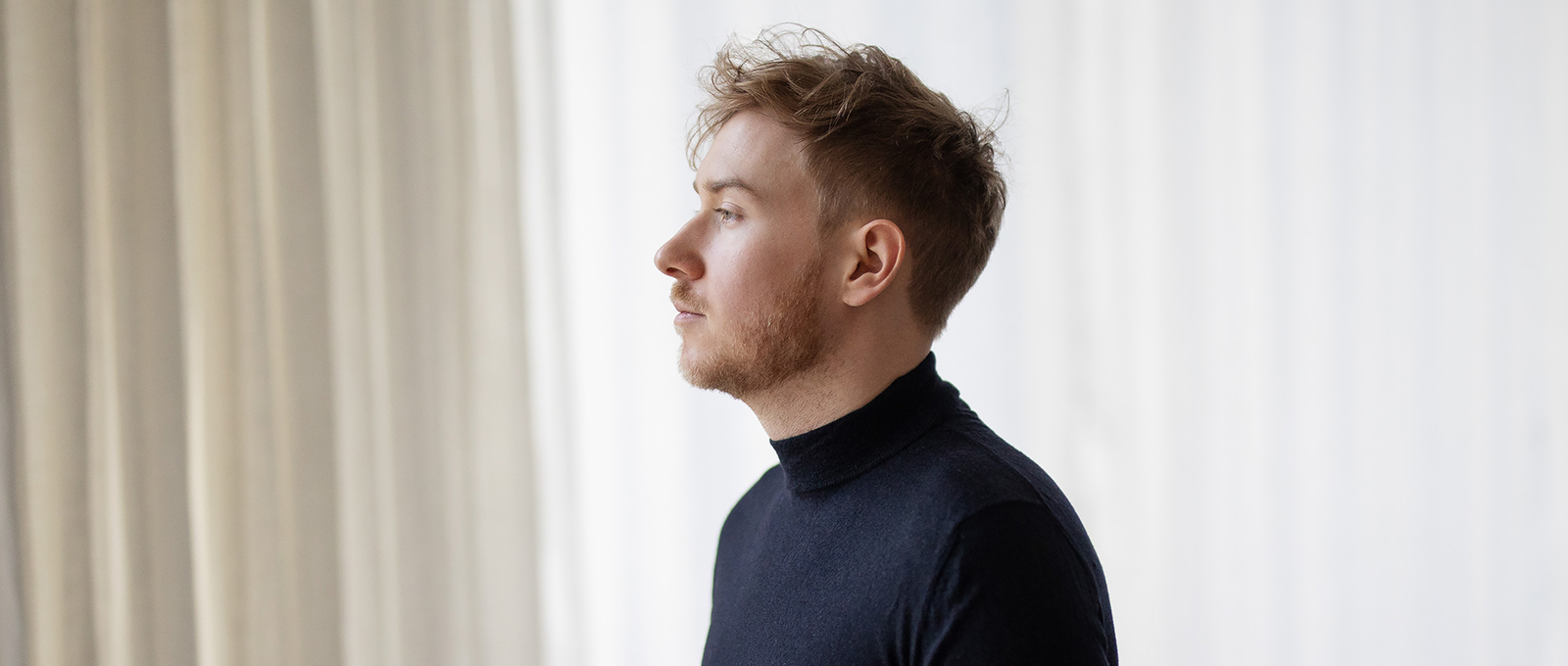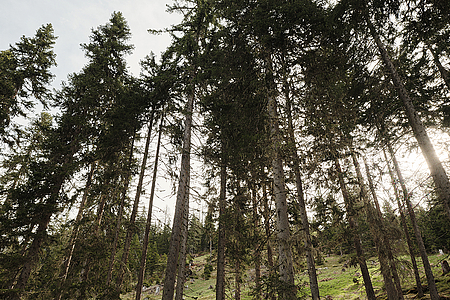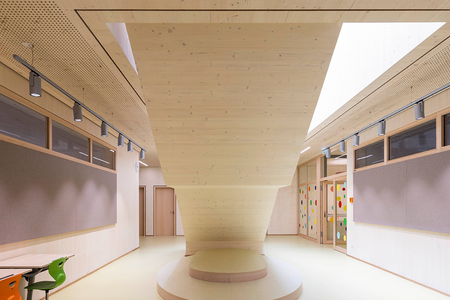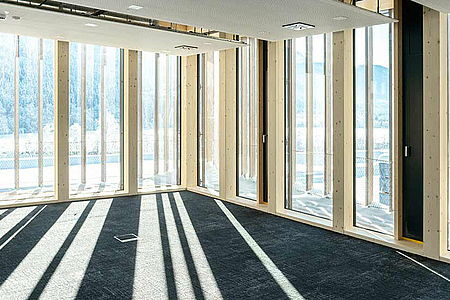2032 – This is how we will work in the future
An interview with futurologist Tristan Horx
Looking at today's working world, two major trends can be observed that will strongly influence our workplaces, the team structure and the nature of our work. On the one hand, artificial intelligence (AI), machine learning and advancing automation are becoming increasingly important. On the other hand, companies will rely more and more on work from home and external sources in the future. The working world of today will no longer exist tomorrow.
2032 – How will the world of work change in the next ten years?
TRISTAN HORX: In the German-speaking cultural zone, the classic eight-hour day still corresponds to the standard that has been here for generations and has developed from the industrial age. As one of the oldest demands of the labour movement, the implementation of this standardised working day represented, at that time, an enormous achievement and an extreme improvement in living conditions. From today's perspective, we see more and more flexible concepts uprising. Initially, the concept of work-life balance emerged – a state in which work and private life are in harmony. I can't help but ask myself: don't you live while you work? I prefer to talk about work-life blending. COVID has rapidly accelerated the transition to working from home. This allows you to organise your own time more individually and ultimately use it optimally in your own interest. However, the system only really works when performance is no longer measured exclusively by working hours, but rather by the completion of certain tasks. This process is supported by increasing automation and will finally lead to an improvement in society – regardless of today's view of “work”. To sum it up, individuality wins in all areas. The next step could then be workation or co-workation. With these models, work and travel can be combined – the ultimate global network, so to speak. Overall, we are facing a huge learning process. These concepts will not work at all levels in certain areas. But what we are witnessing here is definitely the emergence of a megatrend.
What demands will be placed on employers in the working world of tomorrow?
TRISTAN HORX: In addition to meaningful and fulfilling work, today's young professionals want maximum flexibility, personal responsibility and working time models that are individually adapted to their current life situation. I also see fair pay as a major issue: unpaid internships and precarious working relationships lead to a hollowing out of the system in the long term. If companies want to retain or even recruit their best employees in the future, they have to get rid of hierarchical, rigid structures – or accept that the best will seek their happiness in self-employment.
So how will we deal with the shortage of skilled workers?
TRISTAN HORX: The lack of qualified personnel is due to both demographic developments and the fact that we are always lagging behind in training. Today's graduates were trained yesterday, so to speak – a problem with our sluggish training system. The fact is that the job market is clearly developing far faster than we can keep up with the supply of skilled workers. This in and of itself is not a problem if we consider that our learning should continue unabated throughout our lives anyway. In this sense, a certain culture of trust must first be established within companies. As has been demonstrated in the Anglo-American region for decades: Failure might be part of the journey. As a result, the boss becomes a coach who motivates and guides his employees. We have to manage to free ourselves from the ultimate compulsion to control and delegate responsibility. Then every company can form its own specialists.
So is the working world of tomorrow also a generational question?
TRISTAN HORX: I would say no: generational thinking is gradually disappearing. Experience is becoming increasingly important and also represents a certain value. This is of course due to the fact that physical work is becoming increasingly less important as a result of technology. Today, physical fitness is no longer a decisive criterion for whether a job can be completed satisfactorily. Skilled trade workers will not die out as a result. Rather, automation relieves us of the simple, repetitive work steps. But then again, people are needed for refinement. This means that skilled trade will be, so to speak, upgraded to artisan mastery.
To what extent does the term sustainability play a role in this context?
TRISTAN HORX: In my opinion and in relation to the working world of tomorrow, sustainability means a sustainable economy, i.e. a general calming of our financial system, which is out of control, in which reality and the financial market no longer have anything in common. But sustainability also means careful use of our resources – the increasing climate catastrophes are ultimately very expensive for society (aside from the devastating impact on people and nature). Every single company can make its contribution. In this context, I am pleased to see that study programmes with a focus on sustainability are enjoying enormous popularity – so rescue may be in sight.
So where will we live in the future, where will we work and how will we get to work?
TRISTAN HORX: In contrast to Switzerland and Germany, which have a degree of urbanisation of almost 85% and 78% respectively, in Austria it is just under 59%. While 34% of those surveyed wanted to live in Vienna before the lockdown, afterwards this figure dropped to 25%. 32% of 16 to 34-year-olds would consider the possibility of changing their place of residence if they were able to work from home permanently. Why all the numbers? We have been observing the phenomenon of so-called “escape to the country” for some time. Corona has strengthened this desire for high-quality living mediated by peace and quiet, closeness to nature, a healthy living environment and affordable rents like a magnifying glass. In the best case scenario, this could counteract both urban sprawl and high vacancy rates in the countryside. Villages could become real creative hubs, equipped with HyperSpeed WiFi, their own co-working spaces, hip cafés and self-managed cultural institutions. This in turn only works depending on the respective settlement area – compare the Inn Valley and East Tyrol! This also affects our mobility. While public transport, bicycle routes or e-mobility and car sharing are commonplace in urban areas, working from home and remote working can represent a more ecological solution in rural areas. The working world of the future will – and must – be much more individual compared to today.
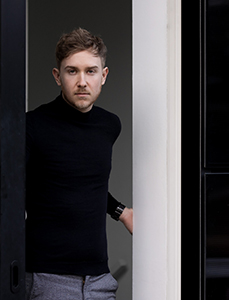
The junior futurist Tristan Horx represents the perspective of the young trend and future research. His interests revolve around the generational question (X/Y/Z, Millennials), New Work, individualisation, lifestyles and megatrends.
As part of the renowned Zukunftsinstitut think tank, founded in 1998, the cultural anthropologist and lecturer in trend research at the SRH University of Heidelberg gets to the heart of the question of which trends are shaping our present and what conclusions can be drawn from them regarding the future of society and the economy. In the interview, as a representative of the so-called Millennials, he gives an outlook on how future generations will work in his opinion.

